SSD Hosting: What Is It and Whats In It For Consumers?
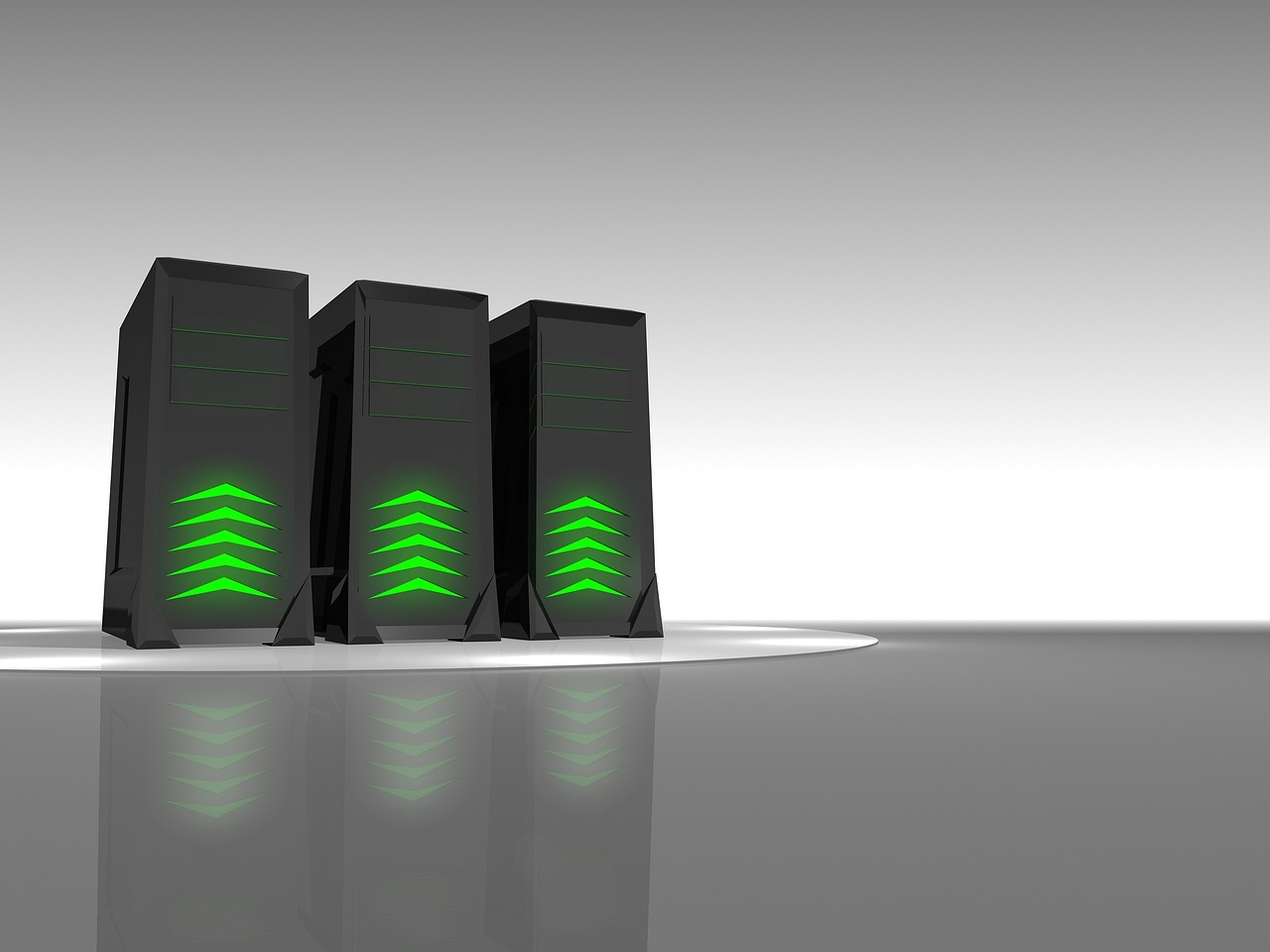
If you’re running a website, it’s important to make sure that you’re doing everything possible to ensure that your site is as fast and efficient as possible. One way to do this is by using SSD hosting. But what is SSD hosting, and why do you need it? In this blog post, I’ll answer those questions and more!
What is Web Hosting?
Before going to SSD hosting, you need to have a basic understanding of what web hosting is. Don’t worry. I know you did not come all the way here to read about hosting. But to give you a better understanding of SSD hosting, I will briefly explain web hosting. If you want to jump to the SSD hosting section directly, click here.
Web hosting is a service that provides internet users with a platform to store their website files and data. A web hosting company will provide its customers with a server where they can upload their website files and data. The hosting company will then make these files and data available to anyone who wants to access them through the internet.
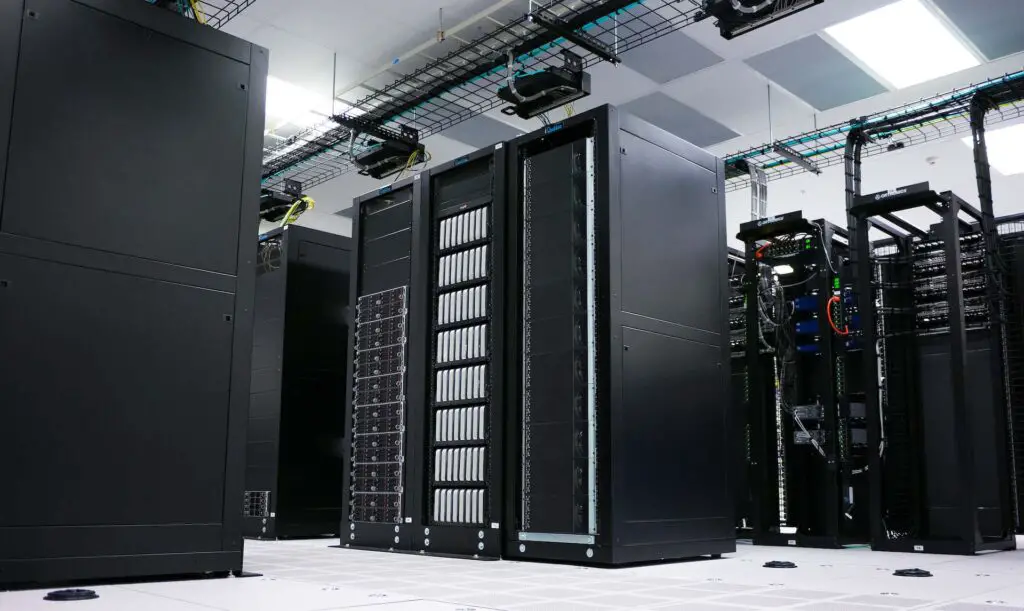
In order to use web hosting, you will need to have a domain name for your website. This is the address that people will use to find your website on the internet. Once you have found a web host and registered your domain name, you can then start building your website.
Many hosting providers also offer domain name services. My preferred one is Namecheap. Some other companies that offer this service are GoDaddy, HostGator, and Network Solutions.
Web hosts usually offer their customers a variety of different tools and services to help them create and manage their websites. These can include website builders, email accounts, and e-commerce platforms. When choosing a web host, it is important to consider what kind of features and services you need to create the website you want.
There are many different types of web hosting available, so it is important to do some research in order to find the best option for you.
Types of Web Hosting
There are four main types of web hosting services:
- Shared Hosting,
- VPS Hosting,
- Dedicated Hosting,
- Cloud Hosting.
- Shared hosting is the most popular type of web hosting. It is suitable for new websites and small businesses because it is the most affordable option. Your website will be hosted on a shared server with other websites. This means that you will share resources such as bandwidth and storage space with other websites hosted on the same server.
- VPS hosting is a step up from shared hosting. It is still suitable for small businesses but can also be used by medium-sized businesses and bloggers who have outgrown their shared hosting plans. A VPS uses virtualization technology to split a physical server into multiple virtual servers. This gives you more control over your server because you are essentially renting your own private server. However, you still share resources with other customers on the same physical server.
- Dedicated hosting is the most expensive type of web hosting, but it also offers the most control over your server because you are not sharing it with other customers. Dedicated hosting is typically used by large businesses and organizations with high traffic levels or requires a high level of security. Simply at the data center, there is a real physical server rented to you.
- Finally, cloud hosting is the most scalable type of web hosting. It uses clusters of virtual servers to provide the resources needed for your website. The advantage of cloud hosting is that it can quickly scale up or down depending on the traffic levels, making it ideal for websites that experience sudden spikes in traffic.
Cloud hosting allows storing your data on multiple servers in different locations (the cloud). This means that if one server goes down, your website will still be accessible from another server in the cloud. Cloud hosting also makes it easy to scale up or down because you only pay for the resources that you use.
What Is SSD Hosting? Why It’s Good For Customers?

If you have read so far, you may now have a good understanding of what a server means. So when you request a space in a web hosting company to host your website, they rent a space inside their server for you.
The speed of the server will heavily depend on the type of web hosting you choose. If you choose a shared hosting over a dedicated server, you share the same server with other websites, which could eventually slow down your website.
However, if you choose a dedicated server or VPS hosting, the speed is guaranteed since no other website will share the same space. VPS is sharing the same PC, not like shared hosting.
No matter what type of hosting type you choose, at the end of the day, there is a storage component that makes up the hosting type. Traditionally when we refer to web hosting, it is the Hard Disk Drive (HDD) that is most commonly used.
HDDs are cheaper, and the capacity of these drives has been increasing over the years, but they have their own set of problems like slow speed, noise, vibration, etc. The hosting company will look after noise and vibration. What you will feel is the slowness of the HDD.
If you want to know more about the differences between a regular HDD and an SSD refer to my article Why Should We Replace HDD with SSD? 08 Reasons
An SSD Hosting is here to solve all these problems and offer you a much faster web hosting experience.
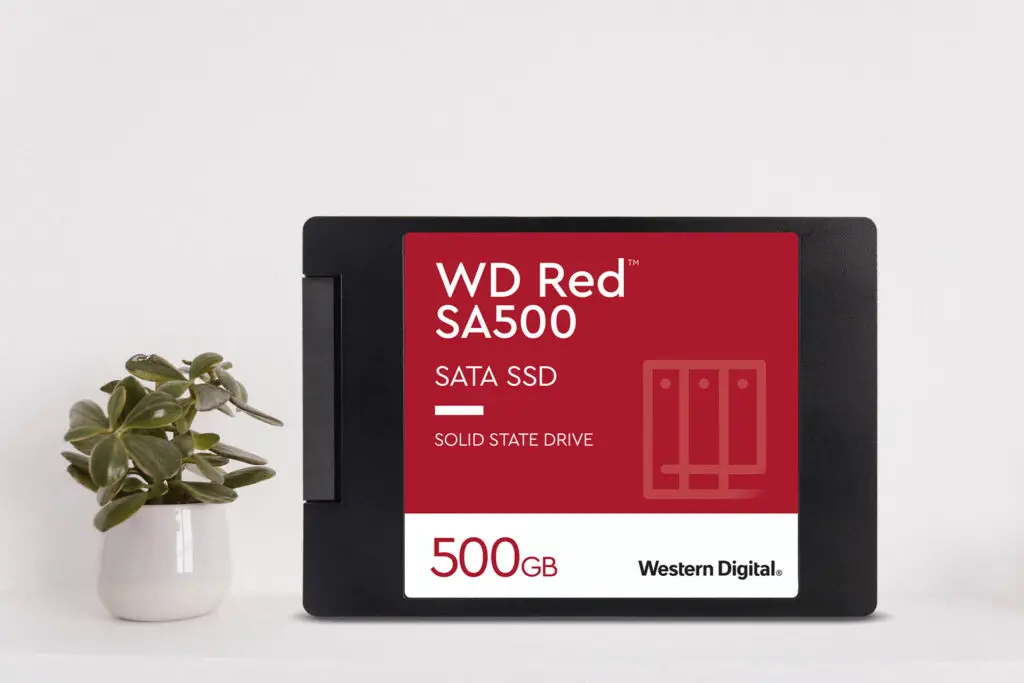
To get a more idea about NAS SSD (SSDs designed specifically for servers), refer to my article What is a NAS SSD and Why Should You Care?
SSD stands for Solid State Drives, which are known for their speed, durability, low power consumption, and no noise or vibration compared to traditional HDDs. Again out of all the advantages of SSD, you only get a chance to feel the speed part.
SSD drives are made up of integrated circuits and no moving parts as compared to HDDs. Hence it can offer a much faster read/write speed, which will eventually lead to a better user experience for your website visitors. Here I want you to take note that if you use some low-level cheap budgeted hosting plan, SSD will not be able to do magic for you.
If you want to get a good idea of which SSD to buy, refer to the below. If you do not know the difference between SATA and NVME, refer What Are the Different Types of SSDs?
How Should I Know if My Web Hosting Provider Uses SSD for Their Web Hosting?

Using SSD for hosting is costly. So it’s automatically a Unique marketing point for those web hosting companies who are using it. In short and sweet, if the company uses it, they will mention it on their website or tell you. No point in hiding it 🙂
So here is a screenshot from Namecheap
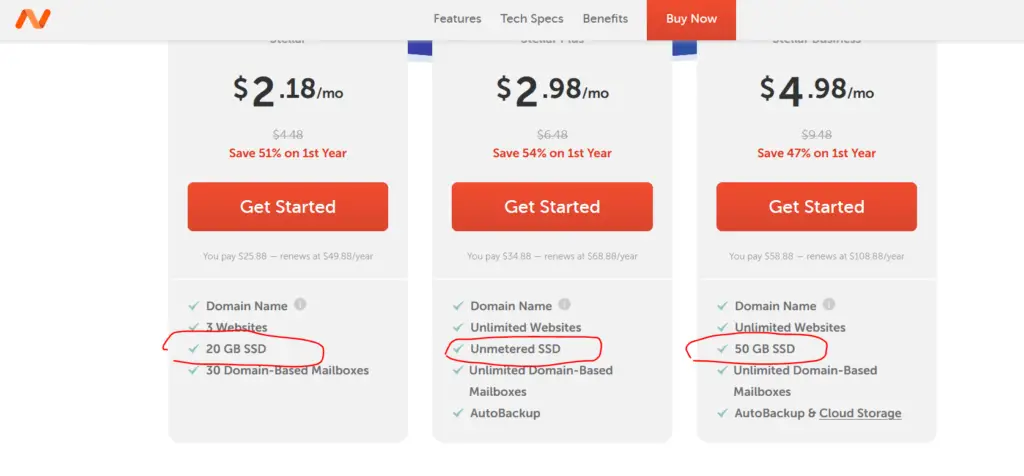
Below is a screenshot from A2hosting. Their details are quite interesting; as you can see on the turbo boost plan, they mentioned that they use NVME SSD, which is really faster than SATA SSD.
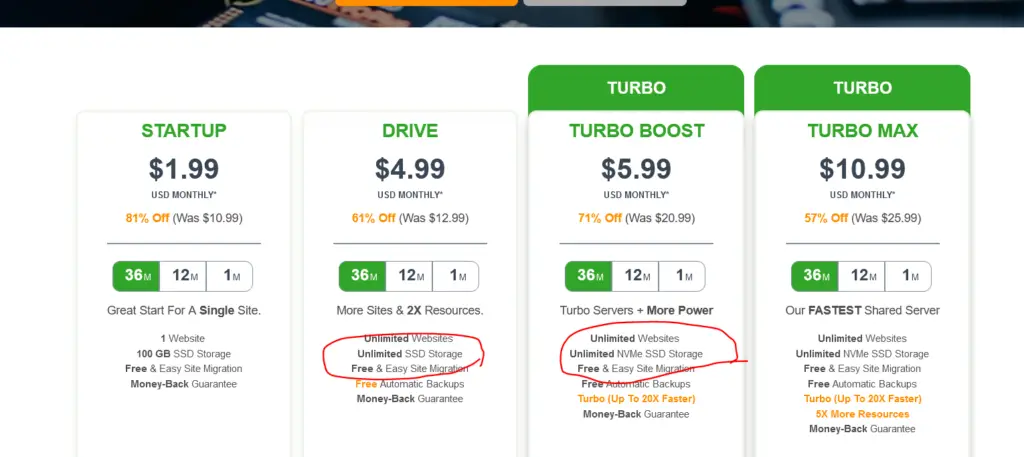
If you want to run a blog or deploy a small company website, I guess you are looking for shared or VPS hosting. In that case, today, most of the major hosting companies use SSD for their hosting as default.
When you deploy a dedicated server, most companies will give you the option to choose between an HDD or SSD, or both. Because storage space is cheaper on an HDD, if that’s all you’re looking for then the hosting company will honor your request.
Here take a look at Godaddy’s dedicated hosting setup page. You can see that they offer you to choose between HDD and NVME SSD.
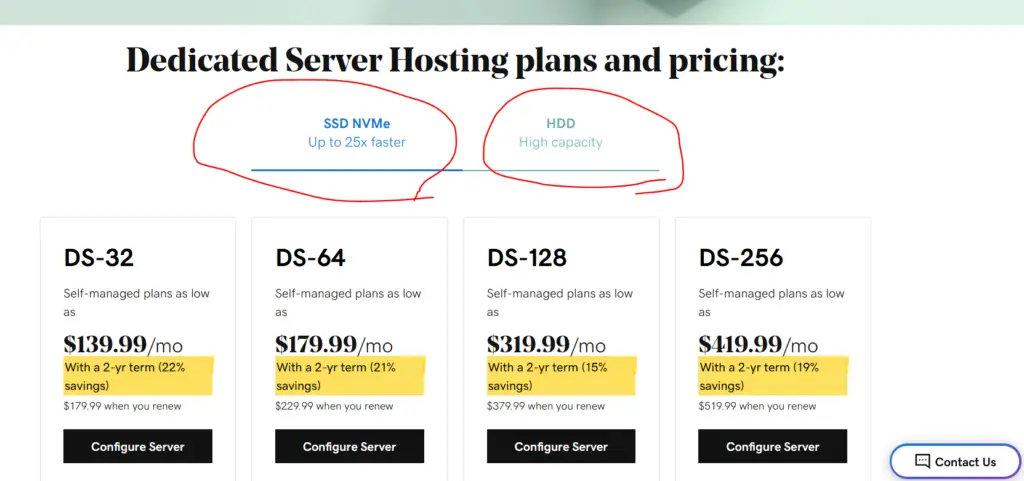
Note here that using SSD will definitely give a performance boost. But that doesn’t mean regular HDDs will run out of the game.
You can find out if your provider is using SSD or not by checking the features page of their website, if they have mentioned SSD then you can be rest assured that they are using it for their servers.
Is It Always Guaranteed That You Will Get Better Performance With SSD Hosting?
Of course not. Note that SSD is just the storage part of the server. Sure, if you have a good server and your storage device is an SSD, you will get that performance boost.
But if you use an outdated system or low-configuration server, it won’t make any difference even though you use an SSD. So the main component is the server and its configuration, not just the storage device on which your files can be stored.
So here are the factors that can affect the performance of a web hosting server. There are many but among the most important are:
1. Processor speed: The processor handles all the requests that come into the server. A faster processor will be able to handle more requests, resulting in better performance.
2. Memory: Memory is used to store information about the currently active websites. More memory will allow the server to store more information, resulting in faster loading times.
3. Bandwidth: The bandwidth is the amount of data that can be transferred in and out of the server. A higher bandwidth will allow more data to be transferred, resulting in faster website loading times.
4. Storage: The storage stores all the files associated with the websites hosted on the server. Going for SSD will definitely win this factor.
5. Software: The software used on the server will affect performance. Using modern and up-to-date software will result in better performance.
6. Caching Technologies: Caching technologies can also help improve a server’s performance. Using caching, website resources are stored temporarily in memory, allowing them to be accessed more quickly.
7. CDN Services: CDNs (Content Delivery Networks) can also help to improve website performance. By using a CDN, web content is cached on servers located around the world, resulting in faster loading times for visitors who are further away from the server’s location. Cloudflare is a good CDN you can use.
8. Type of Hosting Uses: Are you using shared, VPS, dedicated, or cloud? It affects.
So as you can see, there are many factors involved when it comes to getting the best performance from a web hosting server. SSD hosting is just one part of the equation and should only be used if all other factors are in place.

